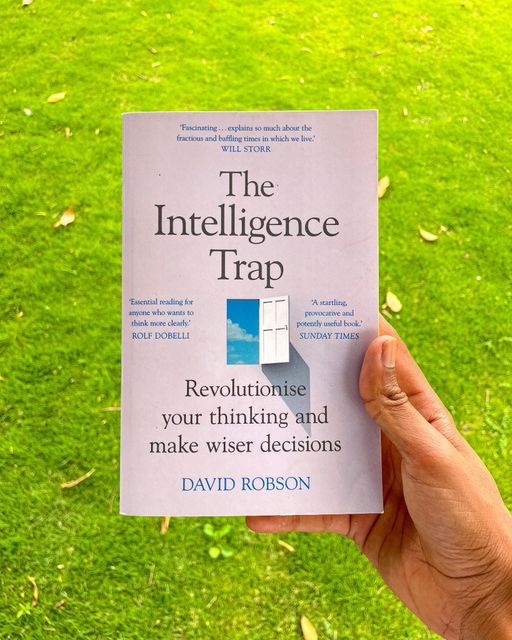In "The Intelligence Trap," David Robson challenges the conventional understanding of intelligence and exposes its limitations. Through cutting-edge research and captivating storytelling, he reveals the surprising ways that even the brightest minds can make mistakes and how reliance on intellect alone can be detrimental to success.
Lessons from "The Intelligence Trap" by David Robson:
1. Beyond Intelligence: Intelligence is not a one-dimensional characteristic. It's a complex interplay of various skills and abilities. Overreliance on intellectual prowess can lead to blind spots and poor decision-making.
2. Embrace "Strategic Ignorance": Knowing when to say "I don't know" and focusing on what truly matters allows you to allocate mental resources efficiently and avoid information overload.
3. The Curse of Expertise: Expertise can be a double-edged sword. While it provides depth in a specific area, it can also lead to cognitive rigidity and resistance to new perspectives. Maintaining a beginner's mind and seeking diverse viewpoints remain crucial for growth.
4. Functional Stupidity: Even intelligent individuals can fall prey to "functional stupidity" due to social pressures, conformity, and the desire to belong. Cultivating critical thinking skills and courage to question the status quo are essential.
5. Embrace Failure and Mistakes: Mistakes are not signs of weakness but valuable learning opportunities. Embracing challenges and learning from setbacks can lead to increased resilience and growth.
6. The Power of Meta-Learning: Develop the ability to "learn how to learn." By mastering meta-learning strategies, you can improve your ability to learn new things efficiently and adapt to changing environments.
7. Building a Cognitive Toolkit: Accumulate a diverse set of mental models and frameworks to analyze situations, solve problems, and make better decisions.
8. The Importance of Humility: Recognizing your limitations and acknowledging your ignorance is key to seeking new knowledge and perspectives.
9. Cultivating Wisdom: Wisdom goes beyond mere intelligence. It involves the ability to apply knowledge and understanding to make sound judgments and navigate complex situations with insight and compassion.
10. Embrace the Journey: Growth is a continuous process, not a destination. Accepting that challenges and setbacks are inevitable parts of the journey allows you to remain resilient and committed to lifelong learning.




